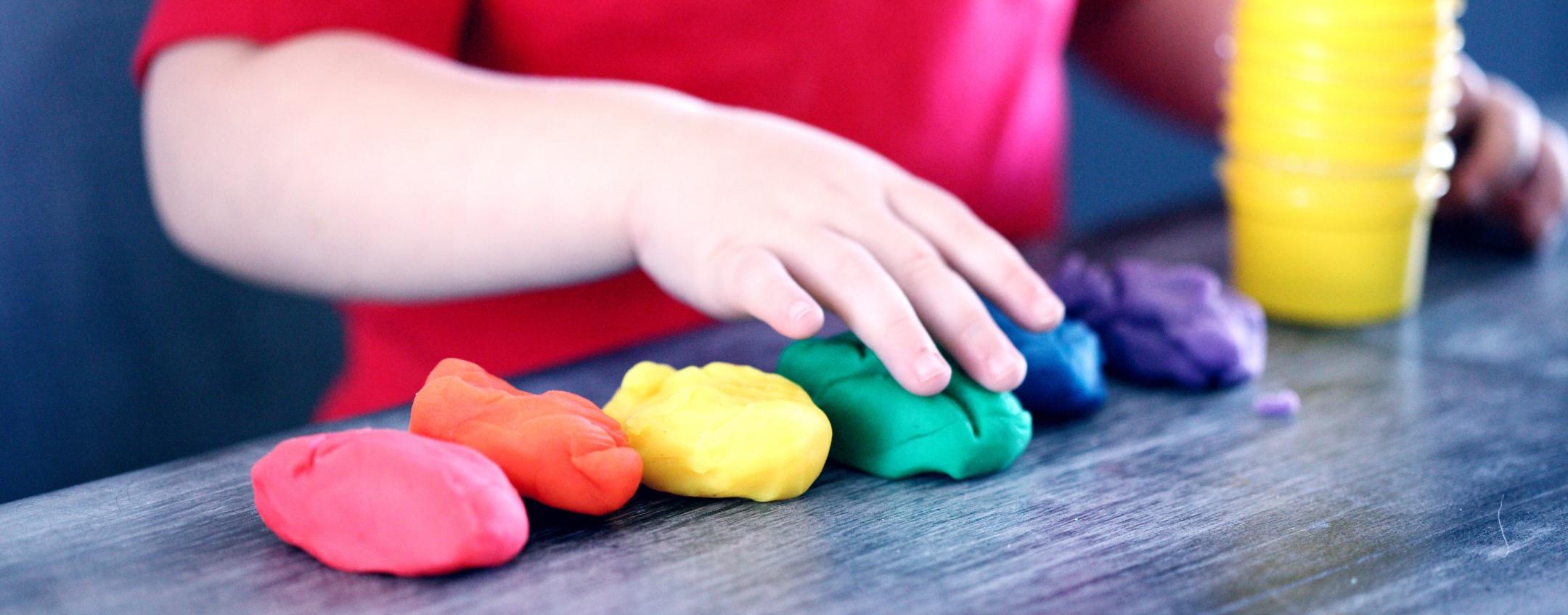Paediatric Sensory Integration and GI Dysfunction in Autistic Children
Date: 15 September 2019
Course Leader: Dr Iona Bramati-Castellarin
Cost: £109-135
About the course
Drawing on the research and experience of Dr Iona Bramati-Castellarin the course aims to analyse the impact of lack of sensory integration in the general paediatric population and behavioural and gastrointestinal dysfunction affecting autistic children. The course will give an overview of the signs and symptoms of Sensory Processing Disorders and Autism Spectrum Disorders as well as evidence for possible osteopathic interventions in both subjects. The course will explore how osteopathy may potentially improve the functioning of poorly integrated senses and a disrupted gut-brain axis. The course aims to increase your understanding and improve your skills in the possible application of a general osteopathic approach to sensory integration and visceral osteopathic techniques on autistic children suffering from gastrointestinal symptoms. There will be an opportunity for hands-on practical technique practice.
Summary of Osteopathic Practice Standards (Updated) and other CPD elements covered
A) Communication and patient partnership- A1, A4, A6
B) Knowledge, skills and performance - B1
C) Safety and quality in practice - C1
D) Professionalism - D1, D6
Communication and Consent - 15 mins
The delegates will be given information on informed consent for patients that are not capable of giving consent themselves due to mental incapacity.
Learning Outcomes
Sensory Integration - Gain an understanding of:
- Use of senses; sight, sound, smell and taste,
- proprioception, oral processing,
- normal sensory integration and movement (PRAXIS);
- Disorders of the PRAXIS- Dyspraxia (Sensor-based motor disorder)
- Sensory processing disorders
- Difficulty in engaging daily activities
- Poor attention
- Poor praxis
- Poor modulation
- Explore an osteopathic approach for assessment and possible treatment of sensory dysfunction; Consider possible findings including examples of cases, sensory processing what to expect and how to measure the progress of treatment
- Gain an appreciation of working in conjunction with other appropriate professionals
Autism Spectrum Disorder
- Gain a detailed understanding of Autism Spectrum Disorder including the background, definition of the disorder, social and communication issues, development, GI dysfunction and the gut-brain connection.
- Learn a practical approach to examination and treatment of autistic children with GI dysfunction including GI landmarks and anatomy
- Learn the important information for Case History Taking
- Gain practical experience in applying the techniques for treatment
Timetable
09:00-09:30 Registration
09:30-11:00 Sensory Integration
- Use of the senses -touch, body positioning – proprioception, sight, sound, smell, taste
- The role of oral processing in dynamic sensory perception - sensory perception of solid foods, texture perception, mastication, swallowing
- Normal Sensory integration and movement (PRAXIS) - sensory processing of movement, having the thought, motor planning, execution
- Disorders of the PRAXIS- Dyspraxia (Sensory-based motor disorder)
- Sensory Processing Disorders - difficulty in engaging daily activities, poor attention, poor praxis, poor modulation.
11:00-11:15 Break
11:15-12:30 Sensory integration treatment
- Osteopathic Approach
- Evaluation Working in conjunction with other profession
- Examples of cases
- Case presentation
12:30-13:30 Lunch
13:30-15:00 Autism Spectrum Disorder
- Background and Definition
- Social Communication; Social Interaction & Social imagination
- Normal Development x Autism
- Evidence Base GI dysfunction in Autism
- Gut– Brain connection
15:00-15:30 Break
15:30-17:00
- Important information for Case History Taking
- Introduction to practical
- GI anatomy and Landmarks
- Case presentation
- Practical -palpation and landmarks identification
- Technique practice
17:00-17:30 Questions & Answers
Course Suitability
The course is suitable for qualified osteopaths
About the course tutor
Dr Iona Bramati-Castellarin graduated from the British College of Osteopathic Medicine (BCOM) in 2001 and for the past 18 years is practicing in London at IBCcare. She is the only known specialist with a doctorate on clinical osteopathy in autistic children suffering from gastrointestinal dysfunction. Dr Bramati-Castellarin was awarded a Ph.D by the University of Westminster – London and recently published her research on the effects of visceral osteopathy in autistic children. Her research project was approved for collaboration with King’s College Hospital, London and endorsed by the National Autistic Society and sponsored by BCOM – London via a grant from the British Naturopathic and Osteopathic Association. Dr Bramati-Castellarin is committed to helping improve the quality of life and well-being of children on the spectrum using a non-invasive form of therapy – Visceral Osteopathy.

Recommended pre-course reading
BRAMATI-CASTELLARIN, I., PATEL, V. and DRYSTDALE, I.P. Faecal Calprotectin and a Twenty-Four-Parameter Questionnaire in Autistic Children with Gastrointestinal Symptoms. SM J Psychiatry Ment Health. 2017; 2(1): 1009.
BRAMATI-CASTELLARIN, I., PATEL, V. B. & DRYSDALE, I. P. Repeat-measures longitudinal study evaluating behavioural and gastrointestinal symptoms in children with autism before, during and after visceral osteopathic technique (VOT). Journal of Bodywork and Movement Therapies In Press – 2016.
BRAMATI-CASTELLARIN, I., DRYSDALE, I. & PATEL, V. 2013. Evaluation of behavioural and gastrointestinal symptoms in autistic children after visceral osteopathic treatment. International Journal of Osteopathic Medicine, 16, e13-e14.
BRAMATI-CASTELLARIN, I., HUCKLEBRIDGE, F., PATEL, V. I. & DRYSDALE, I. 2010. Effect of osteopathic treatment on the gastrointestinal system function of autistic children. International Journal of Osteopathic Medicine, Volume 13, Issue 3, September 2010, Page 120.
Renee Watling, Sarah Hauer; Effectiveness of Ayres Sensory Integration® and Sensory-Based Interventions for People with Autism Spectrum Disorder: A Systematic Review. Am J Occup Ther 2015;69(5):6905180030p1-6905180030p12. doi: 10.5014/ajot.2015.018051.
Renee L. Watling, Jean Dietz; Immediate Effect of Ayres’s Sensory Integration–Based Occupational Therapy Intervention on Children With Autism Spectrum Disorders. Am J Occup Ther 2007;61(5):574-583. doi: 10.5014/ajot.61.5.574.
Grace Baranek; Sensory Features in Children with Autism Spectrum Disorder Versus Other Developmental Disabilities: Stability and Change Across 3 Years. Am J Occup Ther 2018;72(4_Supplement_1):7211515219p1. doi: 10.5014/ajot.2018.72S1-RP104B.
Cancellation Policy
The UCO regrets that no refunds can be made for cancelled places unless a substitute participant can be found. The UCO cannot guarantee that any course will run. In the event of your course being cancelled, all paid fees and deposits will be refunded in full.

